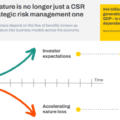Eli Lilly’s Alzheimer’s drug, designed to combat one of the most pervasive neurodegenerative diseases, is reportedly set to face hurdles similar to those experienced by Biogen’s treatment in the U.K. Recent reports suggest that the country’s health regulators are poised to reject the drug, known as donanemab, citing concerns about its clinical efficacy and cost-effectiveness.
As the Alzheimer’s drug landscape evolves, the following points highlight the key issues at play:
The potential fate of donanemab in the U.K. serves as a potent reminder of the delicate balance between innovation in medicine and regulatory standards designed to protect public health. As U.K. authorities prepare their decision, the outcome will likely have wide-ranging implications for both patients and pharmaceutical companies. Stakeholders await the final verdict, eager to see whether Eli Lilly can overcome these barriers and deliver hope to those affected by Alzheimer’s disease.
Overall, the situation reflects the broader challenges within the healthcare sector regarding Alzheimer’s treatments. While innovation is critical in battling this devastating condition, regulatory oversight ensures that all new therapies meet necessary standards for effectiveness and cost-efficiency. Time will tell if Eli Lilly can navigate this complicated landscape successfully.











Leave a Reply